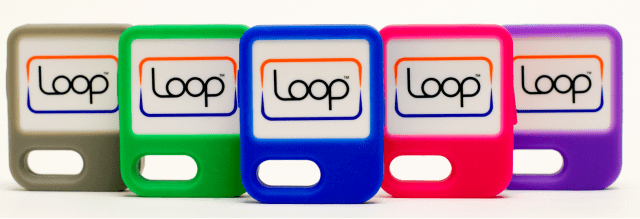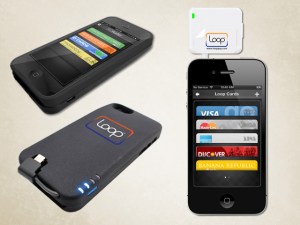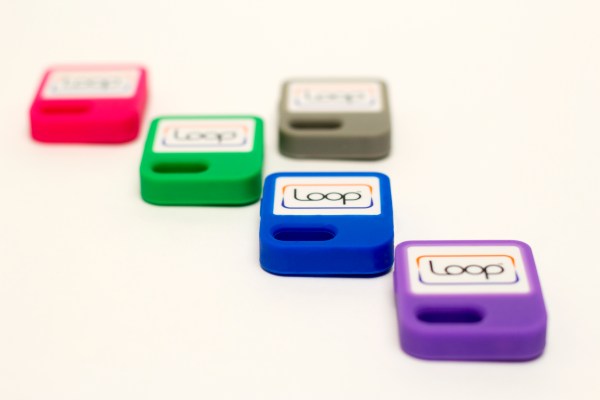New mobile payments startup Loop has closed on $10 million in Series A funding in what’s being described as an “oversubscribed” angel round involving undisclosed investors. The company, which is working to build both smartphone fobs and cases that allow you to pay at point-of-sale by emulating a magstripe credit card swipe, had previously said they were raising the A round from the same group of angels who had invested in the founders’ previous companies.
Loop co-founder and CEO Will Graylin previously founded WAY Systems (sold to VeriFone) and ROAM Data (sold to Ingenico), while Loop’s other co-founder and chief technologist, George Wallner, previously founded Hypercom, also sold to VeriFone. The founders still decline to provide Loop’s investors’ names, but Graylin says the list includes “many high-powered CEOs, including people from the payment industry.”
The company also says the funding will set the stage for Loop’s Series B in early 2014, which will include participation from both strategic and institutional investors.
Loop is targeting the U.S. market with its hardware devices, which include fobs and a more practical charge case product line which will both allow for mobile payments, as well as provide extra battery power.
The company, for those unfamiliar, came up with a somewhat ingenious technological solution which would serve as an alternative to NFC – a technology that’s yet to gain widespread adoption here in the States, due to lack of merchant support and, so far, lack of adoption by Apple, which has decided to not include NFC technology in the iPhone.

But similar to NFC, Loop’s fob or case allows users to pay at point-of-sale by placing their phone near the magstripe reader on the terminal.
Critics of Loop’s plan point out that magstripe technology is on its way out – the U.S.’s transition to EMV (chip cards, like what’s used in Europe) is only years away. The U.S. is supposed to switch by 2015. In addition, it’s unclear how Loop will be received by the industry if it catches on – for now, it mimics a “card present” transaction, even though no credit card is being swiped. “Card not present” transactions, meanwhile, carry higher rates for merchants because of the increased potential for fraud. At some point, this could become an issue for Loop.
But for now, Loop is focused on putting its hardware into the hands of early adopters for continued testing. It’s beginning to ship out its first product, the Loop Fob, to its Kickstarter backers this month. The company obviously didn’t need to raise funding on Kickstarter, but as Graylin has explained before, it wasn’t about the money (they were raising $100,000 there), it was about the community. Kickstarter provided them with access to the ” “world’s largest focus group,” he said.
 The company is still planning on shipping its ChargeCase, too, in matte back and glass white. A ChargeCase ($99, 1200 mAh battery) has been expected to ship in Q1 2014, and a premium ChargeCase shipping in Q2 (1500 mAh battery and much thinner) will follow. The premium case is still being worked on with design changes, says Graylin. There’s another form factor in development, too, he adds.
The company is still planning on shipping its ChargeCase, too, in matte back and glass white. A ChargeCase ($99, 1200 mAh battery) has been expected to ship in Q1 2014, and a premium ChargeCase shipping in Q2 (1500 mAh battery and much thinner) will follow. The premium case is still being worked on with design changes, says Graylin. There’s another form factor in development, too, he adds.
Graylin had told us before that they were working on a Bluetooth LE-enabled plastic card, which could be handed to cashiers for swiping at point-of-sales that are behind the counter, or anywhere else where someone has to do the swiping for you. That development sounds a lot like Coin, the payments startup building a “universal” card that can mimic any payment card in your wallet on the fly.
Loop takes a subtle jab at Coin today, stating that “unlike solutions proposing programmable cards with limited security, memory, battery capacity, and plagued with reliability issues,” Loop’s technology is PCI compliant, holds a variety of cards (payment, gift, loyalty, reward, ID, etc.) and fits in any form factor. The company also hinted that smartwatches are in consideration, referencing those as one of the form factors Loop could support.
In addition to selling direct to consumers, the company is also talking with handset makers about including Loop in 2015 phones, but no deals are yet confirmed.
It also recently signed a deal with Campus Nation Network to create a Campus Loop product line, which will be a digital wallet product aimed at college students, and that includes support for campus IDs, cafeteria plans, loyalty and rewards plans, and other payment cards.
“Thanks to one of our partners, who is also an investor, we expect to promote Loop at over 1,500 Campuses in the next 18 months,” says Damien Balsan, Loop COO. “Students are just one of the segments that we are targeting,” he adds. In a video being posted to YouTube, the company also features moms and others with overstuffed wallets as big as George’s once was.
